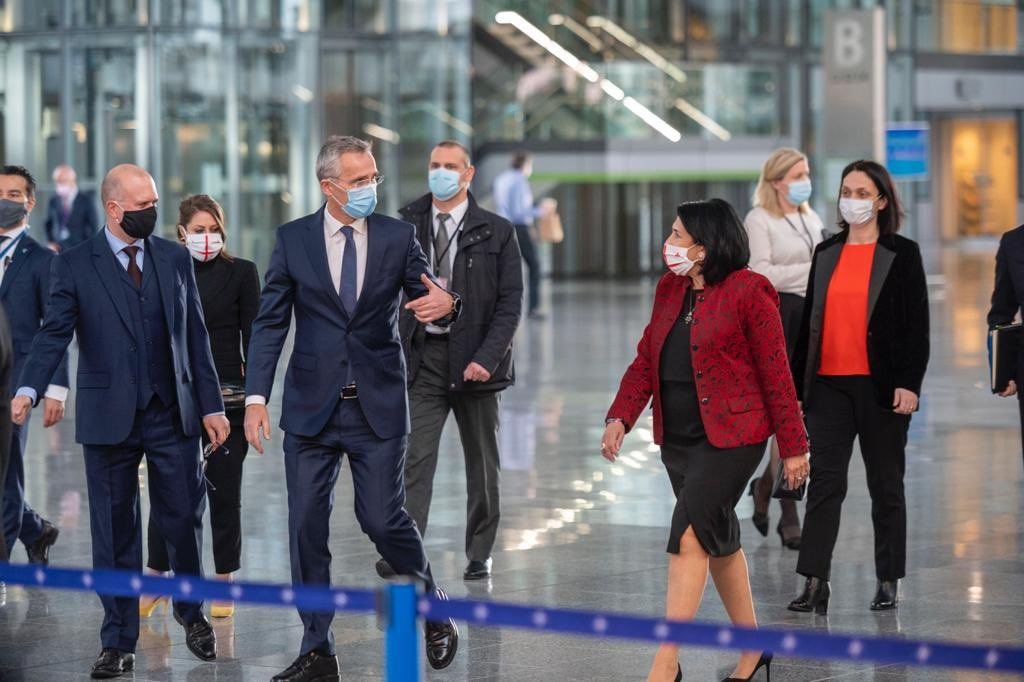As part of her official visit to Brussels, Georgian President Salome Zurabishvili met NATO Secretary-General Jens Stoltenberg today, ahead of the NATO-Georgia Commission meeting.
During the joint press conference after the meeting, Secretary-General Stoltenberg listed secure communications, joint military exercises, enhancing maritime support and situational awareness, as some of the key priorities in NATO-Georgia relations.
The Secretary-General said he also discussed Georgia’s progress on reforms, and underscored those as “a crucial” factor for bringing the country closer “to our shared goal – membership of NATO.”
“We need strong democratic institutions. We need to make sure that we have more than capable security institutions, and of course, civilian control over both the military and the intelligence services,” the NATO Secretary-General stressed.
He also referred to the new U.S. administration’s pledge to repair alliances. “I know President Biden has a strong support role of the transatlantic bond, and Georgia is part of that transatlantic bond,” Stoltenberg stressed.
Secretary-General said yesterday’s verdict of the European Court of Human Rights, paints Russia as responsible for human rights violations in Georgia’s occupied regions of Abkhazia and Tskhinvali/South Ossetia, and that it confirms that Russia exercises effective control of both territories.
“This only strengthens our call for Russia to comply with international law and respect Georgia’s territorial integrity,” Stoltenberg said.
President Zurabishvili, on her part, asserted that “new energy, more movement, more determination,” are needed in NATO-Georgia relations, factoring in the new U.S. President Administration’s eagerness to “reaffirm its ties to NATO,” and the “new reconfiguration of forces” in the Black Sea and Caucasus regions.
She positively evaluated the refreshed Substantial NATO-Georgia Package, albeit stressed that Georgia “needs more,” expressing her hopes that recommendations of the NATO 2030 Expert Group Report will be taken up.
The Georgian President highlighted that COVID-19, cybersecurity, disinformation, and continued conflicts as some of the challenges that need to be overcome.
“Despite the conflict in our neighborhood, despite the conflict in our occupied territories, despite the increased provocations and efforts toward de facto annexation, Georgia has maintained stability not only on its territory but around it,” President Zurabishvili stated.
“Time has come for the Alliance to have more solidarity and more audacity,” she concluded.
Later today, as part of her visit, President Zurabishvili is attending the NATO-Georgia Commission meeting. Stoltenberg said the security situation in the Black Sea region and Russia’s continued military buildup will be discussed.
Also Read:
- President Zurabishvili Begins Brussels Visit
- Secretary-designate Blinken Says NATO Door Shall Remain Open to Georgia
- Georgia in NATO 2030 Report
This post is also available in: ქართული (Georgian) Русский (Russian)

